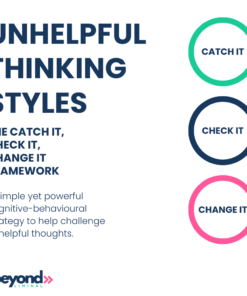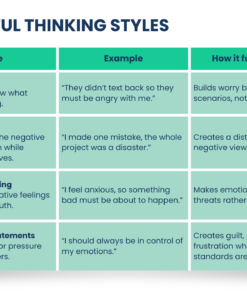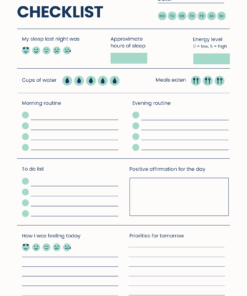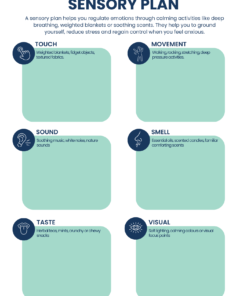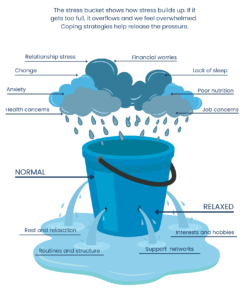Neurodiversity, Occupational Therapy, Social inclusion
1. The power of connection series: building meaningful relationships for mental wellbeing
The social muscle why social skills need regular exercise
Think of your social skills like a set of muscles. If you use them regularly, they stay strong and flexible allowing you to navigate conversations build relationships and engage confidently with others. Just like muscles weaken with inactivity your social abilities can become a bit rusty if you don’t practice them. Imagine trying to run a marathon after years of sitting on the sofa. It would feel hard overwhelming even. That’s how social interactions can feel after long periods of isolation or avoidance. The good news is just like strengthening muscles we can build and maintain our social skills through consistent practice and gradual exposure.
Occupational therapy perspective the PEO model
From an occupational therapy perspective, the person-environment-occupation (PEO) model provides a framework for understanding social participation. This model highlights the dynamic interplay between three key factors:
- Person (P): this refers to your individual abilities challenges and experiences including social confidence communication skills and emotional regulation. Think of it like your personal toolkit for social interaction.
- Environment (E): this encompasses the social and physical spaces you interact with such as workplaces community groups or online platforms. It’s the stage where your social interactions play out.
- Occupation (O): these are the meaningful activities that involve social interaction such as conversations teamwork family gatherings or recreational clubs. These are the social activities that bring meaning and purpose to your life.
When these three elements align well social participation feels natural and fulfilling. Imagine a perfectly choreographed dance where your skills the environment and the activity all flow together seamlessly. However, when there is a mismatch such as an environment that feels overwhelming personal difficulties with communication or a lack of meaningful social activities participation can become challenging. It’s like trying to dance in a crowded room with shoes that don’t fit.
The impact of social anxiety and neurodivergence on participation
For individuals experiencing social anxiety or conditions such as autism spectrum disorder (ASD) social participation can be particularly complex.
- Social anxiety disorder (SAD): people with social anxiety often fear judgment embarrassment or negative evaluation in social settings. This can lead to avoidance reinforcing isolation and making social skills harder to maintain. It’s like living with a constant fear of being watched on stage.
- Autism spectrum disorder (ASD): those on the autism spectrum may experience challenges with social communication sensory sensitivities or interpreting unspoken social rules. Traditional social environments may feel overwhelming making participation difficult. Think of it as trying to understand a language that constantly shifts and changes.
When these conditions are not addressed individuals may withdraw from social opportunities limiting their ability to build relationships access support networks and engage in fulfilling activities. It’s like missing out on all the fun because you’re afraid to join the party.
Strengthening social participation practical strategies
The good news is that social participation like muscle strength can be built and maintained with intentional effort. Here are some occupational therapy-informed strategies to support engagement:
- Graded activity: start small gradually increasing the complexity of social interactions. This might mean beginning with text-based conversations before progressing to in-person meet-ups. It’s like starting with gentle stretches before tackling a full workout.
- Environmental adaptations: modify environments to reduce sensory overload or social pressure such as choosing quieter venues or structured group activities. Think of it as creating a comfortable and supportive space for social interaction.
- Social scripts and role-playing: practising common social scenarios can help build confidence and reduce anxiety. It’s like rehearsing a play before the big performance.
- Mindful reflection: keeping a journal or reflecting on social interactions can help identify strengths and areas for improvement. It’s like reviewing your performance to see what worked well and what could be improved.
- Occupational matching: engaging in meaningful activities that naturally facilitate social interaction such as hobby groups volunteering or shared-interest clubs can create more enjoyable and authentic connections. It’s about finding social activities that align with your interests and passions.
Final thoughts
Social participation is an essential part of wellbeing, but it isn’t always easy. Just as we train our muscles to stay strong, we must nurture our social skills through regular practice and meaningful engagement. By considering the PEO model and using targeted strategies we can create environments and opportunities that support social participation making it more accessible comfortable and rewarding for everyone.
Occupational therapy can really help people who find social situations difficult. It is a therapy that helps people do the everyday activities that they want and need to do. Socialising is a huge part of everyday life. If you feel that socialising is becoming difficult then an occupational therapist may be able to help you. They will work with you to find out what is making social situations difficult for you and then work with you to find solutions.
This post is part of a series the power of connection exploring the role of social participation in mental wellbeing through an occupational therapy lens. Stay tuned for more insights on fostering meaningful connections and overcoming social challenges.
If you find that social situations are causing you anxiety or distress or if you are withdrawing from social activities, please reach out for support. Seeking help is a sign of strength and can be the first step towards building a more fulfilling social life. Contact us today to learn how occupational therapy can help you strengthen your social muscle and create a life filled with meaningful connections.
Step into change: your toolkit for everyday wellbeing
Start your journey today with our self-help guides, resources and practical, supportive tools designed to help you take that first step towards positive, lasting change. Whether you’re building a routine, managing emotions or finding balance, there’s something here to support you.

